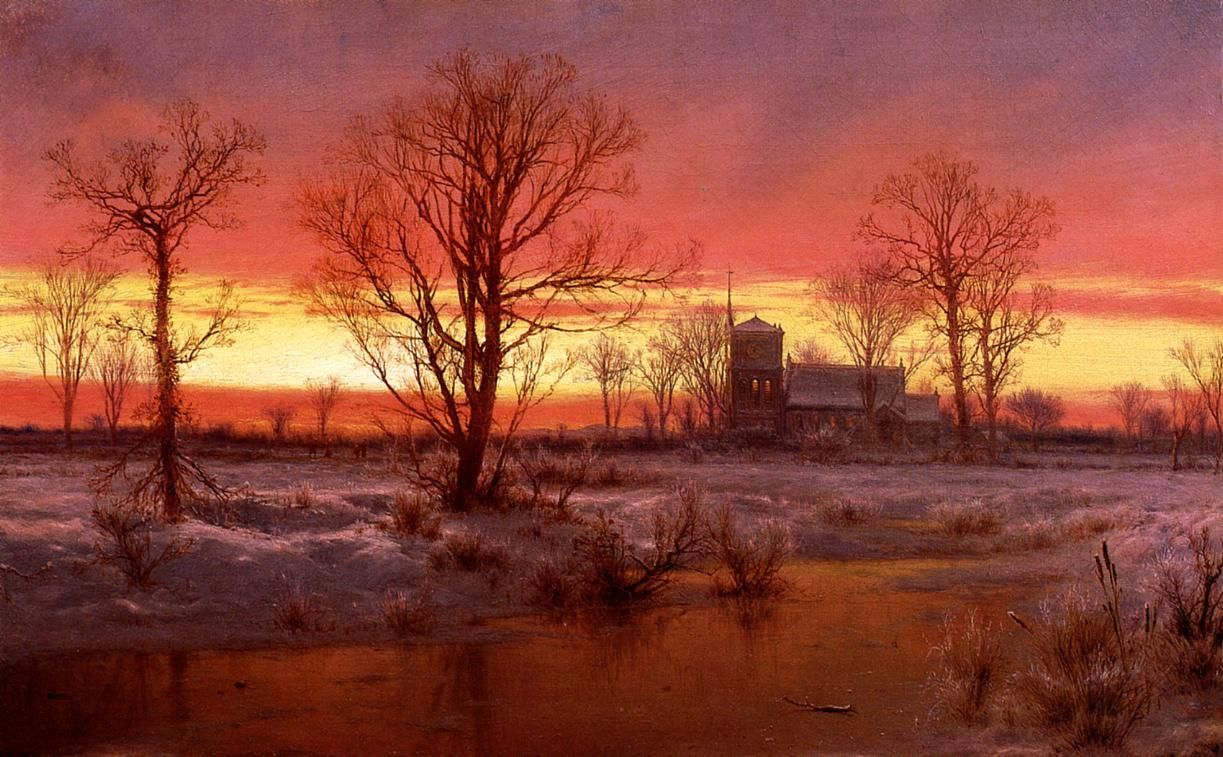I Want To Believe
I want to believe a scarlet sky
Promises sunshine. Don’t know why
They say red skies mean turbulence—
To me it doesn’t make much sense.
I want to believe in love again
And all the things that might have been:
The velvet dust on a moon moth’s wings,
And fanciful shapes of color; things
Now put aside so we can tweet
And twitter, to make our lives complete.
After a Freeze
After a freeze, the ground is hard and sere.
Hard ice piles up upon the crusted snow.
Dry plants shrink back. They seem to show their fear,
As I do when I think back on the flow
Of time, and shrink a little in my shell.
I know I’ve learned my lesson very well:
That every crack in armor writes a line,
And in the end you’ll use it in a rhyme.
A former Wilbur Fellow and six-time Pushcart nominee, Sally Cook is a regular contributor to National Review, and has appeared in venues as varied as Chronicles, Lighten Up On Line, and TRINACRIA. Also a painter, her present works in the style known as Magic Realism are represented in national collections such as the N.S.D.A.R. Museum in Washington, D.C. and The Burchfield-Penney, Buffalo, NY.















Two very nice pieces, Sally. The choriambic substitutions in the first poem are quite effective ( “want to believe” and “Promises sunshine” and “fanciful shapes”).
You have a penchant for writing poems about the weather, but you always manage to make a connection with a psychological state.
Thank you, Joe, for pointing out my use of weather, both psychological and meteorological.
Your comments always dig below the surface to find the full meaning. But isn’t that the essence of poetry and all art? Showing the world one’s knowledge (or lack of it) is such a small part.
I, too, have had a bad week at the office. But I’ve rarely seen you so pessimistic. Did another cat go missing? Thanks once again for an opportunity to reflect upon my own mishandled life.
Yikes! So sorry — chin up, C.B.
To both Sally and Kip —
As we get older, the tragic element in life becomes more prominent in our consciousness. That is a given of the human condition. You have to be a certain age to realize the full force of what the Roman poet says:
Sunt lacrimae rerum, mentem et mortalia tangunt.
It’s almost untranslatable, but here’s a try:
“There are tears within all things, and mortality impinges itself on our mind.”
Timor mortis conturbat me.
So true; the ancients understood life far better than we do. Perhaps the true meaning of each life resides not so much in what occurs or does not occur, but in how we deal with the vicissitudes.
To both Joe and Kip —
On second thought, it is not so much fear of death, but more the running out of time, don’t you think?
Sally, in some sense this is a distinction without a difference.
C.B. –
Perhaps. But I have seen people who fear death with a passion yet not because they fear the loss of time to do anything at all.
I have also known of those who work right up to the end and seemingly have no fear of death. Certainly no two people will react the same way to a threat of extinction. In the end, a great mystery remains just that; a great mystery.
The beautiful and admirable imagery in both excellently-crafted poems gives way to a stark and knowing look at life that touches my heart. These poems are a real pleasure to read.